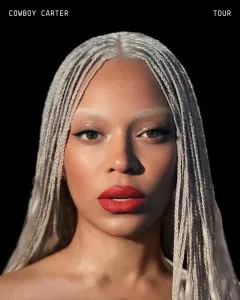Mia Khalifa Fires Back After Being Named Among “Four Women Who Ruined Our Generation”

In a recent social media storm, Mia Khalifa found herself at the center of controversy after a viral post on X named her among “four women who ruined our generation.” The post, which also targeted other prominent women, ignited a firestorm of debate, with critics slamming its misogynistic undertones and others amplifying the narrative. Khalifa, never one to shy away from confrontation, responded with a sharp and unapologetic rebuttal, flipping the script on her detractors and exposing the deeper issues at play.
It began like most viral chaos does: with a cheap tweet designed to provoke. An anonymous user on X (formerly Twitter) posted a collage of four women: Mia Khalifa, Team Trump, Lana Rhoades, and Abella Danger. The caption? “These 4 b***hes ruined our generation.”
No context. No nuance. It’s just misogyny gift-wrapped in a viral format for mass consumption. The tweet exploded, pulling in over 21 million views, spawning parodies, think pieces, and, of course, a chorus of angry defenses and worse insults.
The digital pitchforks came out. But Mia Khalifa didn’t retreat. She sharpened her own.
The original X post, which gained traction rapidly, featured images of Khalifa and three other women, accompanied by the inflammatory caption claiming they had collectively “ruined” an entire generation. While the post didn’t specify how these women were supposedly responsible, its implications leaned heavily on their public personas, particularly Khalifa’s past in the adult entertainment industry. The vague yet provocative nature of the claim fueled its spread, with some users endorsing the sentiment and others decrying it as a lazy attack rooted in sexism.
Khalifa, who has long been a polarizing figure, took to X to address the accusation head-on. In her response, she didn’t mince words, calling out the post for its hypocrisy and absurdity. “Blaming women for your generation’s problems is the kind of weak thinking that actually ruins things,” she wrote, in a post that quickly garnered thousands of likes and reposts. She went further, questioning the logic of scapegoating individuals for systemic issues, adding, “If I’m ruining your generation by existing, maybe your generation’s problem is fragility, not me.”
Her clapback wasn’t just a defense of herself but a broader critique of the culture that produces such narratives. Khalifa, who exited the adult industry years ago, has since become an outspoken advocate for women’s autonomy and against the exploitation of young women in porn. She’s repeatedly shared her own experiences, detailing how she was manipulated into the industry at a young age and how she’s worked to reclaim her narrative. By highlighting her advocacy, Khalifa’s response reframed the attack as an attempt to reduce her to a caricature, ignoring her growth and contributions.
The controversy also sparked a wider conversation on X about the tendency to vilify women who are unapologetically visible, whether through their sexuality, their careers, or their outspokenness. Supporters of Khalifa pointed out the double standards at play, noting that men in similar industries or with controversial pasts rarely face the same level of public shaming. “Mia’s out here calling out predators and fighting for change, but sure, she’s the problem,” one user wrote sarcastically. Others criticized the original post for its lack of substance, arguing it relied on shock value rather than any coherent argument.
The incident is just the latest chapter in Khalifa’s complex public journey. Since leaving adult entertainment, she has built a multifaceted career as a sports commentator, social media influencer, and activist. She’s been vocal about the challenges of moving beyond her past, including the stigma that follows her and the threats she’s faced for her outspoken views. Her response to this latest attack reflects a seasoned resilience, honed by years of navigating similar criticisms.
At its core, the “four women” controversy reveals more about societal discomfort with women’s agency than about Khalifa or her peers. The vague accusation of “ruining” a generation sidesteps accountability for larger cultural, economic, or technological shifts, instead pinning blame on individuals who challenge norms. Khalifa’s refusal to accept that blame—and her ability to turn the narrative back on her critics—underscores why she remains a lightning rod for both admiration and ire.
As the debate continues to unfold on X, one thing is clear: Mia Khalifa isn’t here to be anyone’s scapegoat. Her response serves as both a personal defense and a broader call to question the narratives we accept about women, power, and responsibility. In a world quick to point fingers, Khalifa’s voice cuts through the noise, demanding accountability from those who’d rather vilify than reflect.






